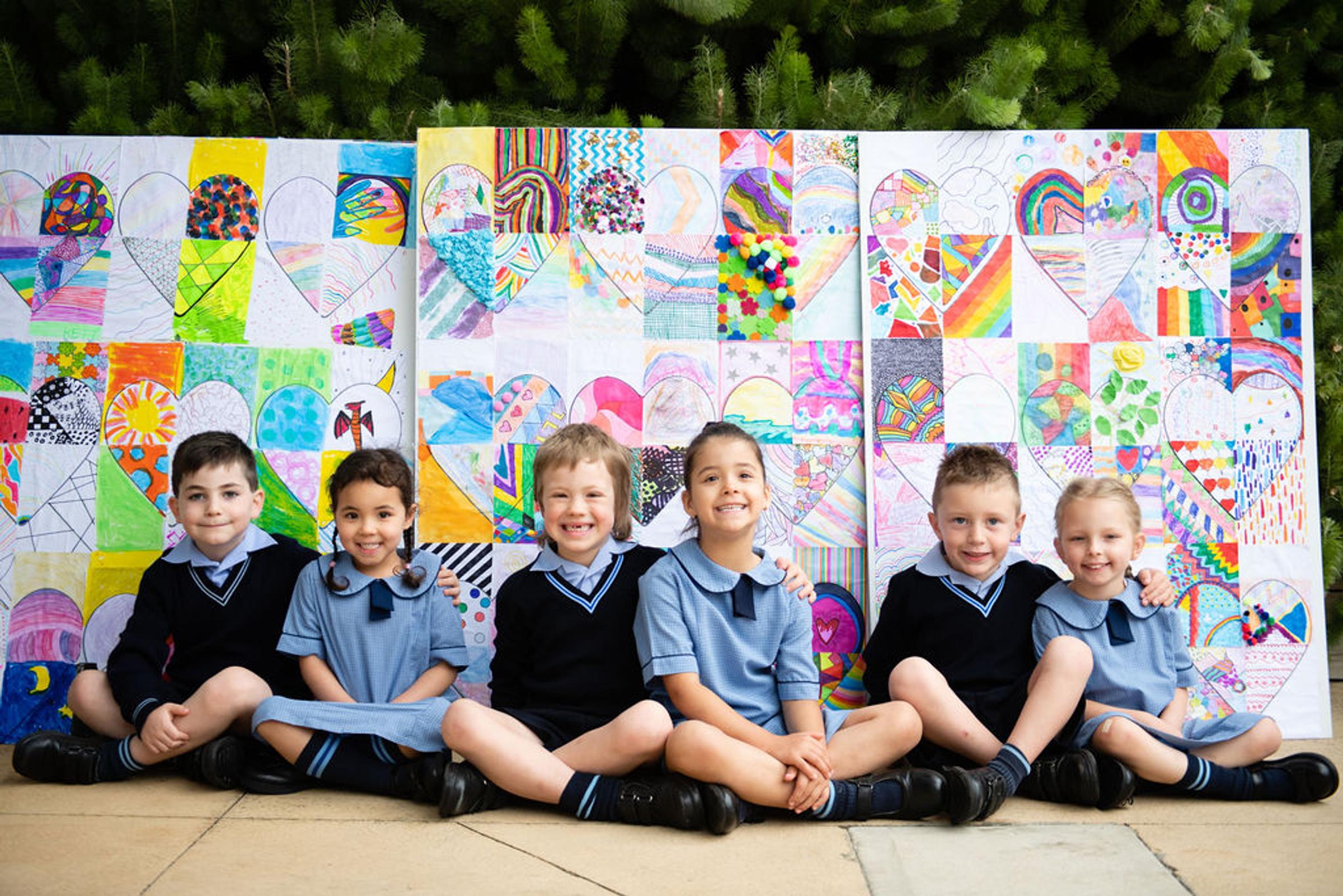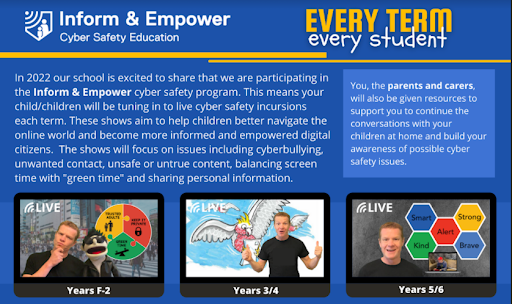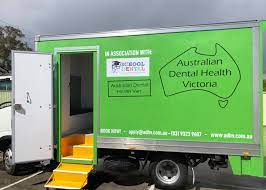Wellbeing
Josy Reeder

Wellbeing
Josy Reeder


Free must have apps for parents and carers. (click this link)
A Program Support Group (PSG) meeting brings together key people to support the inclusion of your child from the time of enrolment and throughout their time in primary school.
Sometimes Melbourne Archdiocese Catholic School (MACS) personnel or other specialists, for example, Speech Pathologists, Psychologists, Occupational Therapists may be invited to attend a PSG. We ask for your understanding in adhering to the allocated dates each term, as we invest in releasing the appropriate staff. As you can see, these meetings are very important and involve the coordination of a number of staff and a substantial financial and time commitment in order to personalise the learning for your child.
| 2022 | Wellbeing PSG dates | Intervention PSG Dates | ||
| Term 1 | Wednesday 30th March | Wednesday 6th April | Thursday 31st March | Thursday 7th April |
| Term 2 | Tuesday 14th June | Wednesday 22nd June | Thursday 16th June | Tuesday 21st June |
| Term 3 | Monday 12th Sept | Wednesday 14th Sept | Tuesday 13th Sept | Thursday 15th Sept |
| Term 4 | Monday 28th Nov | Wednesday 7th Dec | Tuesday 29th Nov | Tuesday 6th Dec |




We have the Australian Dental Health Victoria Van
visiting OLA on the16th -18th March.
Australian Dental Health Victoria (ADHV) is an Independent Initiative providing all school students dental treatment beyond the Medicare eligibility criteria, meaning all students are able to participate. ADHV is an independent, stand-alone company that can see both non-eligible children alongside those who are eligible. The organisation runs on its own accord to ensure all children across the board are receiving vital treatment. This is different from the company we used last year in 2021.
Permission forms were sent home with your child; if you would like your child to attend the Dental Van please return the completed forms to the office. Thank you.
At OLA we begin the school year with a SWELL term. A SWELL (Student Wellbeing Engagement and Love for Learning) term focuses on the wellbeing of our students by providing opportunities for students to transition back into school, develop new friendships and engage in learning activities while feeling happy, safe and secure. Some opportunities include:
Week | Theme | Incursion/Activity |
| Week 1/2 | Friendly and Welcoming | 31st January & 1st February - One on One interviews with class teacher |
| Week 2 | Brain growth | 3rd February - Welcome Morning Tea - Current and New Families 4th February - OLA Family Picnic 10th February - Opening of the School Mass 10th February - Information Night |
| Week 3 | Respectful relationships | 15th February - Georgina Manning Parent Seminar |
| Week 4 | Giving with Purpose | 24th February - Carley McGauran Managing Big Feelings (Prep Parents Only) |
| Week 5 | Goals to grow | 3rd March - Parent Teacher Interviews |
| Week 6 | Big Five Awareness | 10th March - Prep Prayer In Pyjamas Family Faith Night |
| Week 7 | Believe in Yourself | 14th March - Australian Dental Victoria |
| Week 8 | Resilient Attitudes | 21st - 25th March Bike Education 24th March - Grade 3 Reconciliation Parent/Child Workshop |
| Week 9 | Listening and Responding | 1st April - Summer Lightning Premiership |
| Week 10 | People Joy | 4th - 7th April - Sacrament of Reconciliation. 8th April - OLA House Cross Country |
As you may have already seen we have new student planners from The Learning Curve. They include our school information, gratitude journal, diary and a reading log. Students will use this alongside The Learning Curve Wellbeing program which includes lessons and tips for positive education.
Developing Skills and Competencies
Positive Education involves intentionally and explicitly teaching young people how to develop the skills and competencies to grow their brain’s abilities, called the cognitive domain while at the same time teaching them how to acquire the skills of social-emotional resilience, called the non-cognitive domain so that they can live a fulfilling and meaningful life.


Positive Emotions + Gratitude
Being in charge of your emotions through your strengths. Developing the aspects of emotional literacy and making a positive difference using your signature character strengths.
Engagement + Mindfulness
Connecting mindfully with yourself and the present moment. Developing the capacity to pay attention to what you need to pay attention to.
Relationships + Empathy
Showing others matter by doing good to feel good, feeling good to do good and being respectful. Looking to the future with optimism and hope.
Meaning + Purpose
Being passionate about something larger than yourself, doing the right thing and doing the thing right to make a positive difference in your world.
Accomplishment + Optimism
Adopting growth mindsets to deliberately practise more difficult approaches to grow your brain’s abilities so that you can achieve what you set out to do.
Health + Strengths
Having a healthy body and healthy mind by being regularly active, eating fresh whole foods and looking for what’s good in your life.
Teachers & students play games and activities that are designed to develop students’ sense of belonging to the class from day one of the school year. Teachers will continue to focus on the Make Jesus Real Daily Positive Happenings ‘Manners Monday, Thanking Tuesday, Winking Wednesday, Thumbs up Thursday and High Five Friday’.
What can you do to help?
Josy Reeder
Learning Diversity/Wellbeing Leader